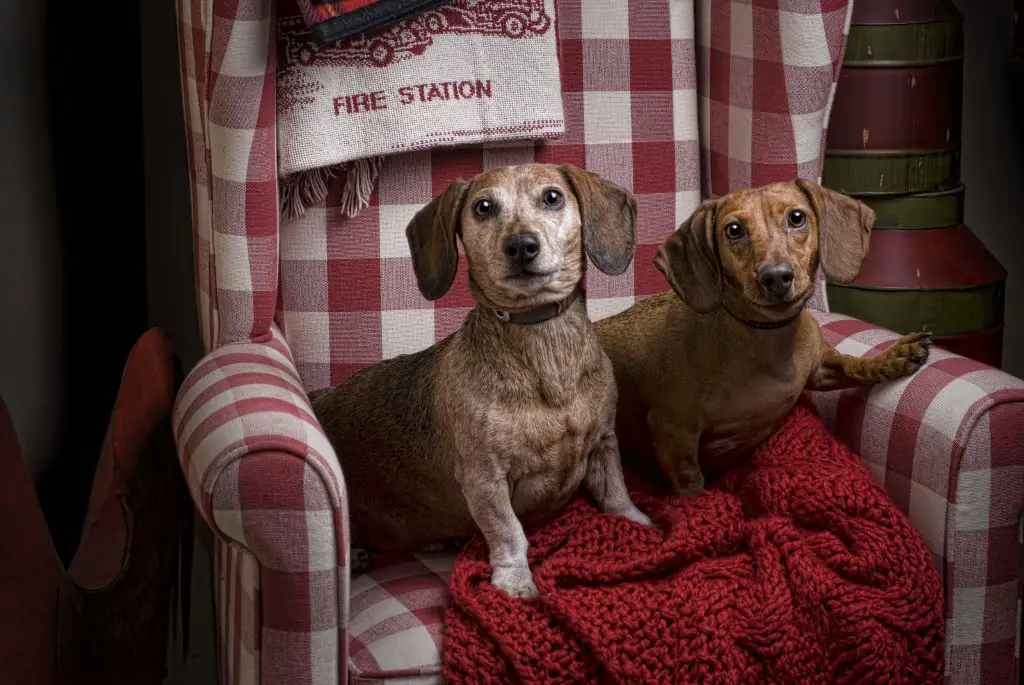Warning: Trying to access array offset on value of type bool in /home/u778996160/domains/dachshundtalk.com/public_html/wp-content/plugins/wp-word-count/public/class-wpwc-public.php on line 123
Warning: Trying to access array offset on value of type bool in /home/u778996160/domains/dachshundtalk.com/public_html/wp-content/plugins/wp-word-count/public/class-wpwc-public.php on line 123
If you’re looking for the perfect puppy to take home, finding the responsible breeder is a crucial step. Keep in mind that you’ll have this dog for 10+ years, so take the few extra hours upfront to effectively communicate with your breeder, visit the litter of puppies, and ask thorough questions.
It can be intimidating to approach a breeder, so we’ve provided some tips and tricks for a seamless interaction and stress-free process.
Be Polite
Being polite is one of the most important parts of contacting a breeder, hence why it’s at the top of the list. Compile the questions you’d like to ask and ask them in a friendly way. Be kind to the breeder and show respect.
A breeder can tell a lot about how a person may treat a dog, just based on their personality. If you come across as demanding and aggressive, this isn’t a good sign to a breeder. The breeder you’re talking to has likely been in the business for years, so listen to their suggestions and learn from their knowledge of the breed.
Properly Introduce Yourself
When you email or call the breeder, they’ll see you as a potential candidate to buy one of their dogs. Provide thorough information about yourself to prove that you’re a trustworthy person who can take good care of a dog.
Give a complete introduction about who you are, where you live, and how you found them, and ask if they may have time for a discussion. Show that you’re serious about buying and that you have a lifestyle that can take care of a dog.
Be Persistent
As you begin the process of calling and sending emails, note that some breeders may be hard to get in contact with. Many breeders only breed part-time and may be busy with another career. You’ll need to be persistent, but not overbearing if you really want one of their dogs.
This could mean leaving a voicemail at the end of your call that includes your name and number. You can also call or email a couple of times but realize that this may have the opposite effect if it’s seen as bothering or too much.
Ask Questions

Once you secure a time for discussion, compile questions about the litter. Your questions will need to be thorough to ensure that you’re covering any information that’s important to know when buying a puppy of that breed.
You may ask questions about the benefits and drawbacks, care, or life span of that dog. Coming in with background knowledge speeds up the process and shows that you’ve researched. Also, ask about the parents’ health records, and ask for general information about the current litter. You can also ask the breeder about themselves and their business. They’re sure to love that you’re taking an interest in their life as well!
Show your Knowledge of the Breed
As mentioned above, coming into the discussion with previous knowledge of the breed is very beneficial. It shows the breeder that you’re prepared, and you’ve done thorough research on the breed.
Breeders are looking for someone who is serious about buying a dog and ready to care for it to the best of their ability. When you show an understanding of what to expect, you’re more likely to come away with a puppy in the end.
Bring Up Your Previous Dogs
Another way to gain a breeder’s approval is to tell them about your experiences with animals in the past. Let them know if you’ve owned dogs and focused on how much you enjoyed that experience. Inform them that you keep your pets healthy and well-cared for.
You can also tell them about the training you’ve put your pets through, what you liked about the breed, and why you’re looking to buy another dog. These all show that you’re a worthy owner!
Receive Guidance from the Breeder
By showing interest in the breed, you may receive guidance from the breeder on the best methods to care for them, or even insider tips about training techniques and other care tricks. This breeder is knowledgeable about the breed, so this is your best person to learn from.
Get to know the lifestyle of these dogs if you haven’t already owned one, and find out how best to support it as it grows up. If you can, try creating a long-term relationship with the breeder so you can go back and ask questions even after you’ve taken home the puppy.
Don’t View Buying a Puppy as a Financial Transaction

This is an important point to keep in mind as you get ready to buy a dog. Don’t view the process of buying a dog as a financial transaction, which means don’t treat it as if you’re buying a product.
Treat it more as an adoption where you’re accepting a new member of the family into your home. Show that you love this puppy and will take care of it. It can also be a long process to buy a puppy once you include the vet visits and trips to visit the litter, so this isn’t your normal “business transaction.”
Visit the Litter
After you’ve had a discussion with the breeder and are ready to buy your puppy, you should take a trip to the litter in person. It builds a better relationship between you and the breeder while also allowing you to see which of the puppies may fit you best.
Show affection to the dogs and play with them while you’re visiting. Who wouldn’t want to play with a room full of puppies?
Ensure you have proper conditions for the puppy
Before officially taking your new puppy home, make sure everything at home is puppy proofed. This means that cords are hidden, small objects are picked up, and a playpen is set up to keep the puppy in. Some breeds may also require a fence to let the dog play while keeping them contained.
Let your breeder know ahead of time what you’re doing to get prepared for the puppy to assure them that the dog will be safe with you.
How to Avoid Bad Dog Breeders
Finding the right breeder can really make a difference in your dog’s temperament at home and overall personality. However, there are also some bad breeders who may not take good care of their dogs or have unhealthy puppies.
Here are a few tips to help you avoid these types of breeders:
Ask friends / Family for recommendations
If you’re looking for a dog, and you don’t know where to start, consider asking your friends and family for breeders they’ve used in the past. They may have some recommendations that would be perfect for you. Additionally, many online resources offer lists of reputable dog breeders.
Do your research
Check to see if the breeder is registered with the AKC or another reputable dog registry. This will help you know that they have been evaluated and meet certain standards.
If it doesn’t feel right – pull out
Don’t feel obligated to buy a dog just because you’ve spoken to the breeder on the phone or met them in person. If it doesn’t feel right, don’t do anything else other than pull out and move on. You can always find another reputable breeder down the road.
Dog groups
There are also many dog groups online where you can meet other people who are interested in adopting a particular breed of dog. This can be a great way to connect with like-minded individuals and find a breeder perfect for you.
Always ask to see the parents
Any reputable breeder will be happy to bring you over to meet the parents of the puppies. This is an important step because it allows you to get a sense for how well-socialized and adjusted the puppy will be when they come home with you.
Be skeptical of cheap prices
If the breeder is offering a cheap price on a puppy, it may be because they’re not providing the best care for their dogs. Cheap breeders may sell unhealthy or mistreated puppies in order to make a quick buck.
Questions you should ask the breeders
Now you know what the breeder wants from you, it’s time to ask some questions of your own! Here are a few things to consider for the breeder. Remember, this is your chance to get to know them and their dogs better:
How many puppies are currently available?
How long has the breeder been breeding this particular breed of dog?
What common health concerns occur in this breed, and how can you mitigate them if they arise in your home?
Do the parents have any health issues?
When are the puppies going to be ready?
Have they had any vaccinations?
Have they been microchipped?
How old are the parents?
Can I see the parents?
How many litters has the mum had?
Conclusion
Buying a new puppy takes lots of time and effort, so be prepared for a multi-step process that could last for weeks.
One of the most important parts of this process will be your interactions with the breeder since they’re selling you the puppy, so follow our tips throughout this article to ensure smooth communication and a great experience when buying a puppy. Now have fun playing with the newest member of the family!








